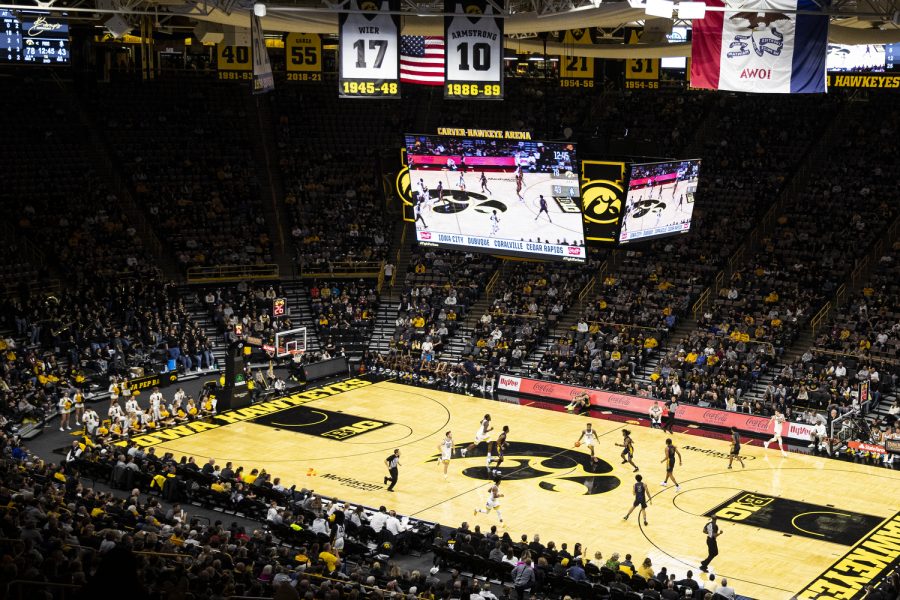Iowa men’s basketball student manager Evan Schuster was charged with tampering with records as part of the Iowa Division of Criminal Investigation’s probe into sports gambling. The criminal complaint was filed on Friday.
Schuster joins Iowa football graduate assistant Owen O’Brien and seven other current and former Hawkeye student-athletes who have also been charged with tampering with records related to the investigation.
The charge is labeled as an aggravated misdemeanor, but could be punishable by a maximum sentence of two years in prison if convicted.
According to court documents, Schuster reportedly placed over 2,000 bets totaling more than $15,800 on a FanDuel account under his father’s name. Most of the bets were made while Schuster was below 21 years old, Iowa’s legal gambling age.
Nine of the bets made under his father’s name were on Iowa men’s basketball games during the 2021-22 and 2022-23 seasons while Schuster was working as a student manager.
FanDuel’s website states that customers are prohibited from wagering on behalf of a third party or allowing other individuals access to their accounts. This includes sharing accounts among friends or family.
Schuster then used a separate FanDuel account under his own name and placed a bet on the Iowa men’s basketball game against Auburn in the first round of the 2023 NCAA Tournament.
The bets were “routinely and consistently placed from” Schuster’s personal iPhone, according to the complaint, and locations of the bets included his “university residence and areas of the university not routinely open to the public.”
The court document cited four “legal and regulatory frameworks” violated, including underage gambling, violation of licensed sportsbook user terms and conditions, unfair wagering and conflict of interest, and tax implications.
NCAA rules ban collegiate athletes from wagering on all NCAA sports. If athletes or athletic employees specifically wager on their own sports or others at their school, they can face permanent loss of eligibility.
There is a lesser punishment for NCAA athletes or athletic employees who bet on professional sports or others not related to their field of competition. In those cases, the NCAA said that it will assess how much money was bet, and the higher dollar amount wagered will determine what level of suspension could be given for a single season.



